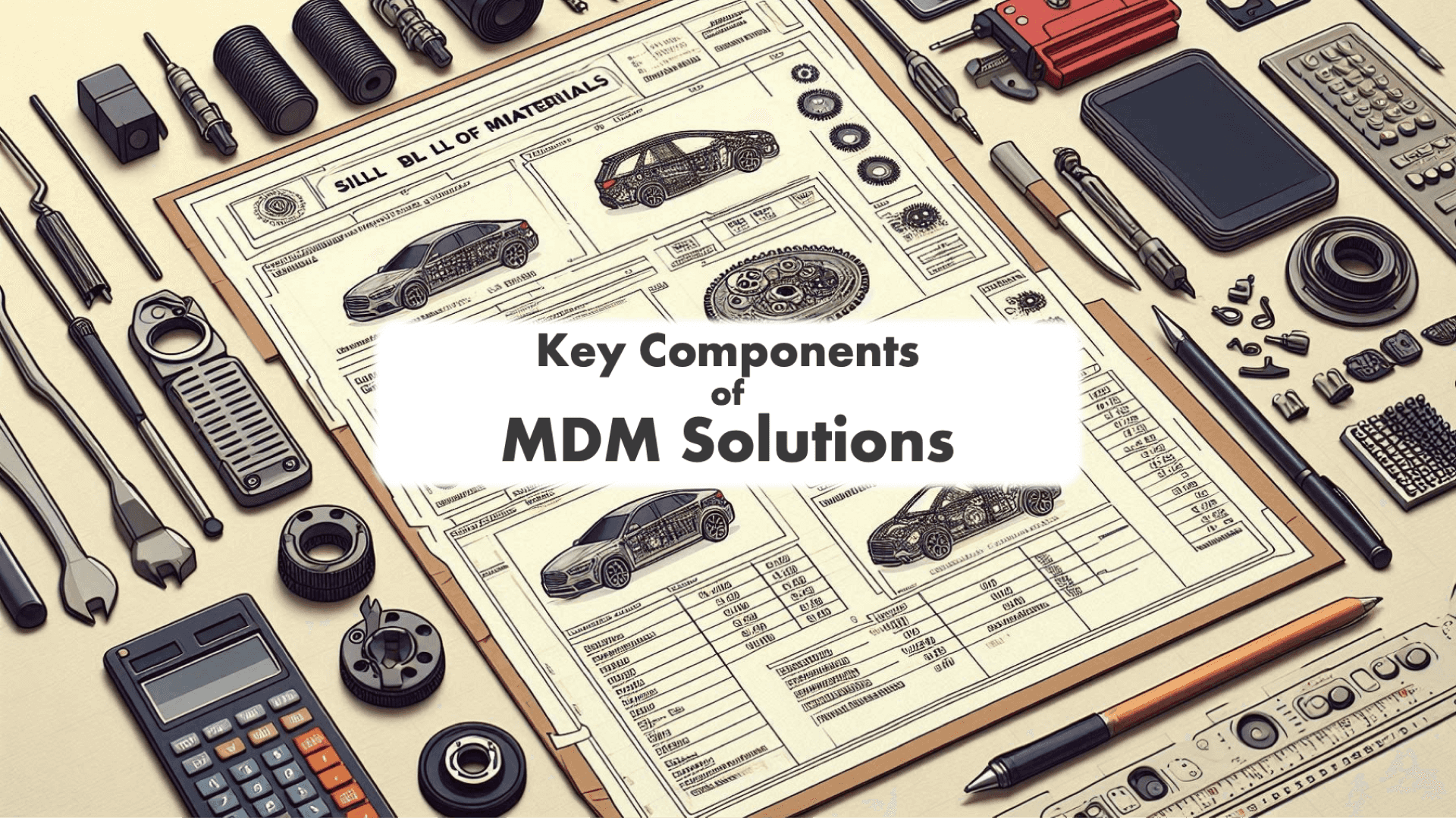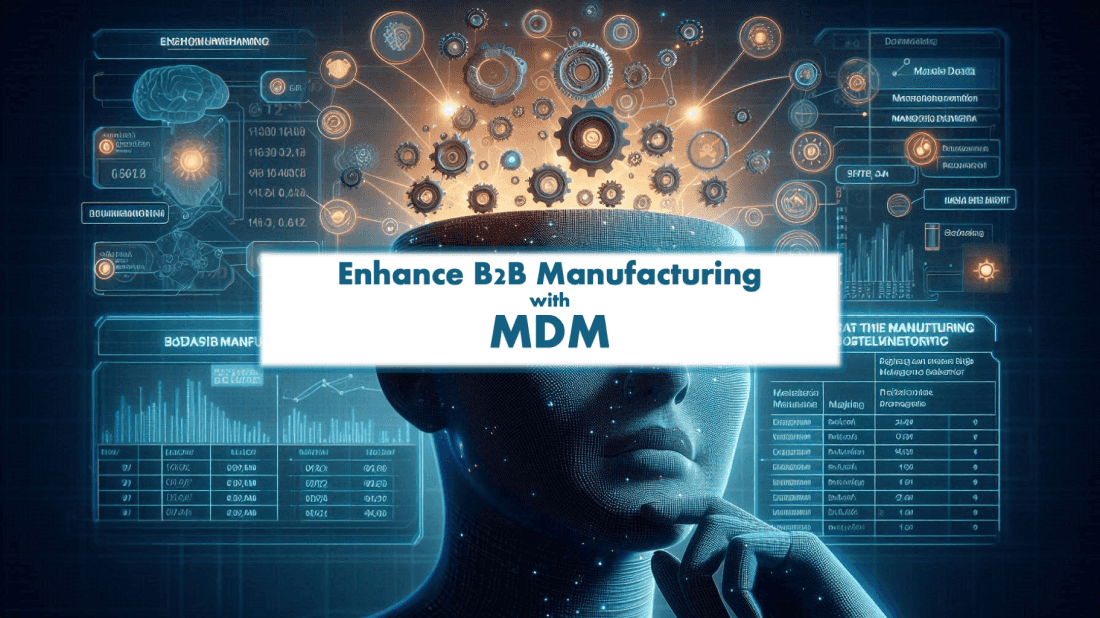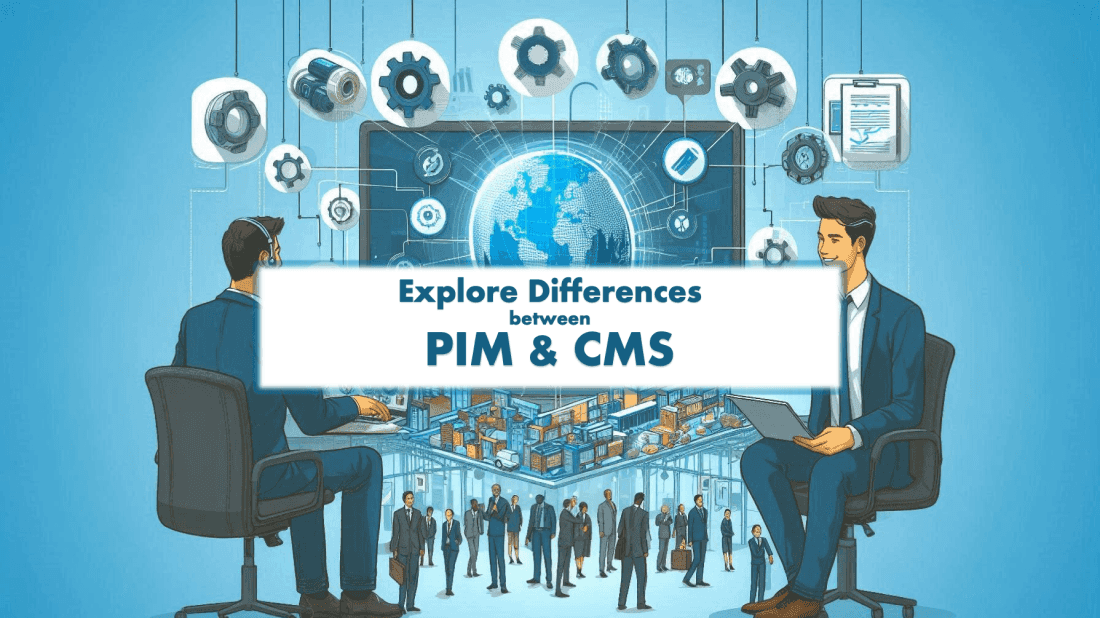Jun 4th, 2024
PIM vs MDM: Key Differences and Benefits for B2B Manufacturers
Categories:Product Information Management SystemMaster Data Management SystemAs data volumes explode, business models change, and new sales channels emerge, having trusted product data is more crucial than ever before
Remaining competitive while delivering exceptional customer experiences requires an agile, scalable, and flexible solution for managing product data. This need has led organizations to invest in master data management (MDM) and product information management (PIM) systems.
What Is Product Information Management (PIM)?
Product Information Management solutions centralize the management of product data and digital assets, streamlining collaborative data enrichment. They help standardize and automate the complex demands of product information management, syndicating enriched and high-quality product information to various touchpoints.
Key Capabilities and Benefits of PIM:
-
Streamline collaboration: Collaborate on product content both internally and externally with partners and suppliers.
-
Automate workflows: Manage and approve product information workflows automatically.
-
Speed up time to market: Launch new products faster with streamlined processes.
-
Improve omnichannel capabilities: Publish consistent, relevant, and localized product content across all channels.
-
Secure data exchange: Exchange product data securely via data pools. • Increase sales: Deliver rich and complete product information and digital assets to improve up-sell and cross-sell opportunities, enabling higher conversion rates.
PIM systems are particularly beneficial for B2B manufacturers of complex products, as they help manage detailed product specifications, technical data, and compliance information. By using the best product information management software, companies can ensure data consistency and accuracy across all channels, leading to improved customer trust and satisfaction.
Drivers and Users of PIM
Typically driven by the sales or marketing organization, PIM systems support a large number of users performing functions directly related to sales or marketing processes. These systems enable multiple stakeholders to author a comprehensive set of product attributes needed by the business. PIM for manufacturers is essential for managing detailed product content and enriching product data, ensuring that all information is up-to-date and accurate.
What Is Master Data Management (MDM)?
Master Data Management (MDM) provides a single source of truth based on trusted, accurate, and complete product data. MDM systems create relationships between products, customers, vendors, employees, and more, fuelling analytical and operational business applications. Mastering product data with MDM is crucial for any data-driven digital transformation across the business, including marketing, sales operations, supply chain optimization, and compliance initiatives.
Key Capabilities and Benefits of MDM:
-
Access a trusted 360°-view of product data: Achieve a comprehensive view of product data across the organization.
-
Avoid product launch delays: Ensure timely product launches by managing data efficiently.
-
Improve supply chain efficiencies: Enhance supply chain operations with accurate data.
-
Enable rapid traceability: Quickly trace products throughout the supply chain.
-
Reduce inventory levels: Optimize inventory management with accurate data.
-
Enhance customer service: Improve customer satisfaction with reliable product information.
-
Consolidate data: Integrate product data from different systems for better decision-making.
-
Support analytics: Use accurate product data across the enterprise for analytics to identify opportunities and increase value.
MDM solutions provide the framework for managing master data effectively. Tools for master data management help businesses maintain data consistency, improve data quality, and enable better decision-making. The benefits of master data management include enhanced operational efficiency, reduced costs, and improved compliance with industry standards. Cloud master data management solutions further enhance scalability and flexibility, offering businesses a robust platform for managing data assets.
Implementing Master Data Management Best Practices
To maximize the benefits of MDM, it’s essential to follow master data management best practices. These include establishing a clear master data management strategy, defining roles and responsibilities within the organization, and utilizing appropriate master data management tools. Implementing a comprehensive master data management framework ensures that all data is managed consistently and effectively across the business.
Master Data Management Strategy:
-
Define master data management: Clearly outline the scope and objectives of your MDM initiative.
-
Select the right tools: Choose master data management software that fits your business needs.
-
Develop a framework: Create a structured approach to manage data quality, data integration, and data governance.
-
Engage stakeholders: Involve all relevant business units in the MDM process to ensure alignment and cooperation.
Do I Need a PIM or MDM to Master Product Data?
The decision to use PIM or MDM should be based on the specific business challenges your organization faces. For example, PIM is ideal for managing detailed product content and enriching product data, whereas MDM is essential for creating a single source of truth and managing relationships between different data entities. Understanding what is master data management and how it differs from PIM can help you make an informed decision.
PIM and MDM: A Powerful Combination
Organizations often find value in leveraging both PIM and MDM. PIM serves as the business application for collaboration on product authoring and syndicating data to external systems, while MDM maintains the Product Golden Record and supports hierarchy, reporting, and analytics. Together, PIM and MDM enable a comprehensive product master data ecosystem that supports various business use cases and future data strategies.
By implementing both systems, businesses can achieve unparalleled efficiency and accuracy in managing product data, ultimately driving better business outcomes and enhanced customer experiences. Cloud-based PIM and MDM solutions offer additional benefits, including scalability, flexibility, and cost savings. The integration of master data management and data governance ensures that all data is managed securely and complies with regulatory requirements.
About Neurologik.io
Do you feel like your product team at your company spends way too much time on tedious data administration instead of actual product work?
Neurologik.io streamlines all your product data into one intuitive platform, putting an end to hunting through scattered systems and manually updating information. Our customers cut their data management workload by 80% on average. Imagine what your team could accomplish with all that time saved.
If you’d like to explore how Neurologik.io can massively boost your company’s product team productivity, Contact us for a demo today.







